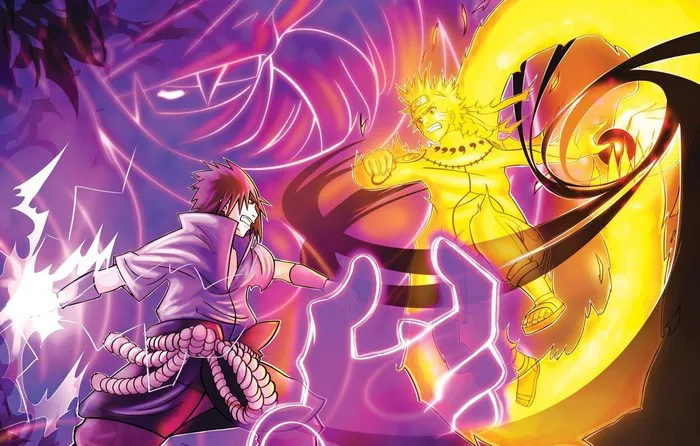In the vast landscape of anime and manga, few series have achieved the level of global recognition and impact as Naruto. Created by Masashi Kishimoto, Naruto follows the journey of a young ninja named Naruto Uzumaki as he navigates the challenges of the ninja world while pursuing his dream of becoming the strongest ninja and leader of his village, the Hokage. While Naruto’s popularity is undeniable on a global scale, one question remains: Is Naruto equally beloved and celebrated in its home country of Japan? In this article, we’ll delve into the cultural phenomenon that is Naruto and examine its reception and influence within Japan.
Introduction to Naruto: A Cultural Icon
Naruto made its debut in Weekly Shonen Jump magazine in 1999 and quickly gained traction among readers with its compelling characters, intricate world-building, and dynamic action sequences. As the series progressed, it garnered a dedicated fanbase both in Japan and internationally, spawning a wide range of merchandise, video games, movies, and spin-off series.
At the heart of Naruto’s appeal lies its universal themes of friendship, perseverance, and redemption, which resonate with audiences of all ages. The series explores complex moral dilemmas, the bonds of camaraderie, and the pursuit of one’s dreams, making it relatable to viewers around the world.
Naruto’s Impact on Global Pop Culture
Before diving into Naruto’s popularity in Japan, it’s essential to acknowledge the series’ profound impact on global pop culture. Naruto’s influence extends far beyond its original manga and anime adaptations, shaping the landscape of entertainment and inspiring countless creators and artists worldwide.
One of the key factors contributing to Naruto’s global success is its accessibility. The series has been translated into multiple languages and distributed across various platforms, making it easily accessible to audiences outside of Japan. Additionally, Naruto’s diverse cast of characters and richly detailed world-building has resonated with viewers from different cultural backgrounds, fostering a sense of inclusivity and connection.
Naruto’s cultural significance is further underscored by its presence in mainstream media, with references to the series appearing in television shows, films, and even political discourse. The iconic imagery of Naruto’s trademark “Naruto run” and hand signs has become synonymous with anime culture and is frequently parodied and imitated in popular media.
Naruto’s Reception in Japan: A Closer Look
Given Naruto’s immense popularity on a global scale, it’s natural to wonder how the series is perceived in its country of origin, Japan. While Naruto undeniably enjoys a considerable following in Japan, its reception and cultural impact within the country differ in some respects from its international acclaim.
1. Cultural Saturation:
In Japan, Naruto is not just a beloved anime and manga series—it’s a cultural phenomenon. The series has permeated various aspects of Japanese popular culture, from merchandise and cosplay to theme park attractions and collaborations with other brands. Naruto’s influence can be felt across a wide range of media and entertainment industries, cementing its status as a cultural icon in Japan.
2. Multi-Generational Appeal:
One of the key reasons for Naruto’s enduring popularity in Japan is its ability to appeal to audiences of all ages. While initially targeted at a younger demographic, Naruto’s complex storytelling, character development, and thematic depth have attracted viewers across generations. The series has resonated with both children and adults, fostering a sense of nostalgia among older fans while captivating new audiences with its timeless themes.
3. Cultural Significance:
Naruto’s portrayal of ninja culture and mythology holds particular significance in Japan, where the ninja have long been a source of fascination and intrigue. The series pays homage to traditional Japanese folklore and martial arts, incorporating elements such as ninjutsu techniques, samurai honor codes, and mythical creatures into its narrative. As a result, Naruto holds a special place in the hearts of Japanese fans who appreciate its reverence for their cultural heritage.
Naruto’s Enduring Legacy
As Naruto celebrates its 25th anniversary since its serialization in Weekly Shonen Jump, its legacy continues to endure both in Japan and around the world. The series has left an indelible mark on the anime and manga industry, inspiring countless creators and influencing subsequent generations of storytellers.
Beyond its entertainment value, Naruto’s themes of perseverance, friendship, and self-discovery have left a lasting impression on its audience, instilling valuable life lessons and moral values. The series has sparked meaningful discussions about identity, belonging, and the power of empathy, resonating with viewers on a deeply personal level.
Conclusion: Naruto’s Place in Japanese Culture
In conclusion, Naruto’s popularity in Japan is undeniable, with the series enjoying widespread acclaim and cultural significance within its home country. From its humble beginnings as a manga serial in Weekly Shonen Jump to its status as a global phenomenon, Naruto has captivated audiences with its compelling characters, engaging storytelling, and universal themes.
While its reception and cultural impact may vary between different regions and demographics, one thing remains clear: Naruto’s legacy as a cultural icon and symbol of perseverance and determination will continue to inspire and resonate with audiences for generations to come. Whether you’re a lifelong fan or discovering the series for the first time, Naruto’s enduring appeal transcends borders and speaks to the timeless power of storytelling to unite and inspire people around the world.


